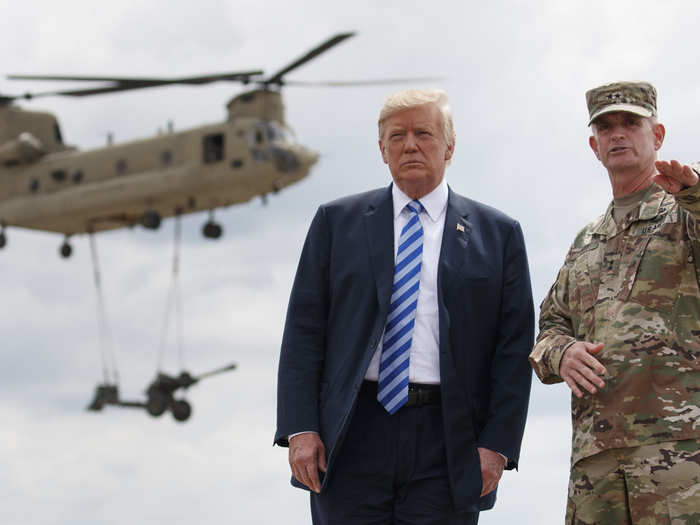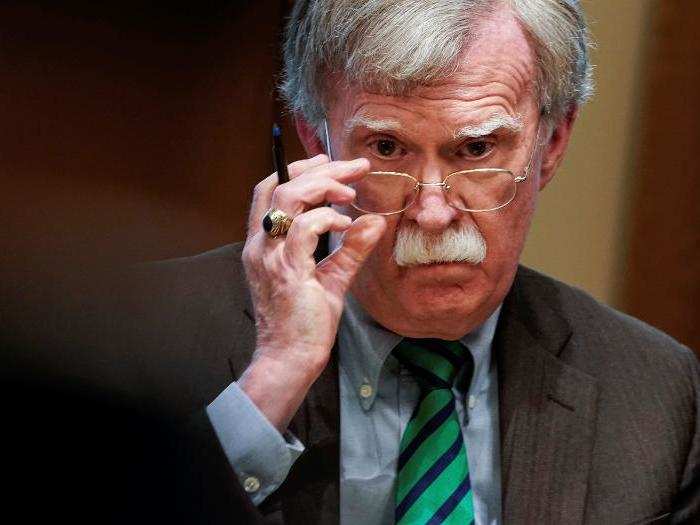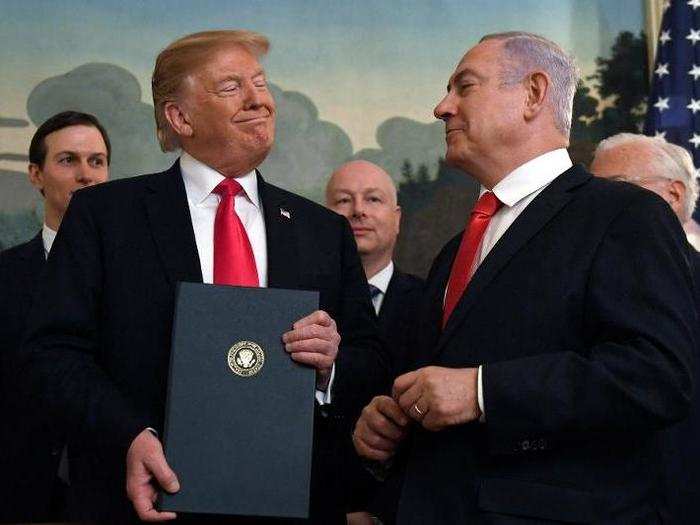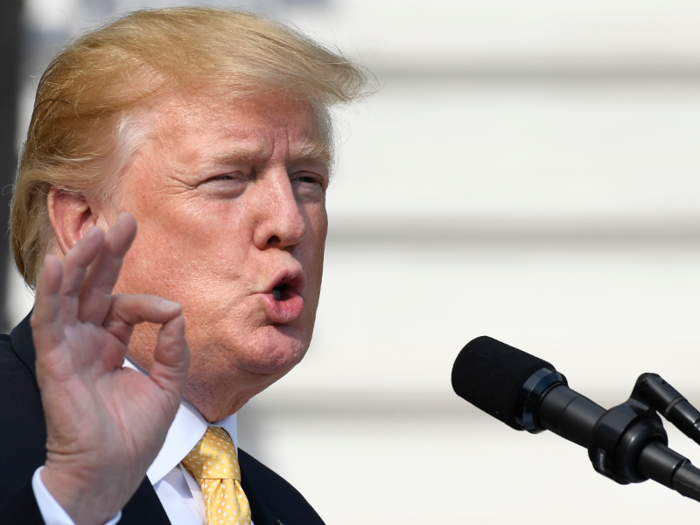- Home
- slideshows
- miscellaneous
- 7 American myths finally exposed by the Trump presidency
7 American myths finally exposed by the Trump presidency
Myth #1: The purpose of government is to advance the common good.

Myth #2: Good governance entails fiscal responsibility.

This is one of the hoariest shibboleths of modern American politics: feckless Democrats tax and spend; sober Republicans stand for balanced budgets.
So President Ronald Reagan claimed, en route to racking up the massive deficits that transformed the United States from the world's number one creditor into its biggest debtor. George W. Bush doubled down on Reagan's promise. Yet during his presidency, deficits skyrocketed, eventually exceeding a trillion dollars per annum. No apologies were forthcoming. "Deficits don't matter," his vice president announced.
Then along came Trump. Reciting the standard Republican catechism, he vowed not only to balance the budget but to pay off the entire national debt within eight years. It was going to be a cinch. Instead, the projected deficit in the current fiscal year will once again top a cool trillion dollars while heading skywards. The media took brief note — and moved on.
Here's the naked truth that Trump invites us to contemplate: both parties are more than comfortable with red ink. As charged, the Democrats are indeed the party of tax and spend. Yet the GOP is the party of spend-at-least-as-much (especially on the Pentagon) while offering massive tax cuts to the rich.
Myth #3: Justice is blind.

The nomination of Brett Kavanaugh to the Supreme Court and the controversies surrounding his confirmation affirmed in unmistakable terms what had been hidden in plain sight since at least 1987 when Robert Bork was denied a seat on the court. The Supreme Court has become a venue for advancing a partisan agenda. It serves, in effect, as a third legislative body, consisting of unelected members with lifelong tenure, answerable only to itself. So politically active Americans of whatever stripe believe. Justice impartially administered is for people who still believe in the Tooth Fairy.
As a result, the Supremes now wear invisible labels on their black robes, identifying members as either liberal or conservative, aligned, in effect, with Democratic or Republican positions. On hot-button issues — gun rights and abortion rights are two examples — their job is to act accordingly. Hence, the consternation caused when a member violates those expectations, as was the case when Chief Justice John Roberts voted to preserve the Affordable Care Act.
So both parties engage in unapologetic court packing. In recent years, Mitch McConnell and the Senate Republicans, who blocked dozens of Obama appointees to the federal bench and prevented Merrick Garland's nomination to the Supreme Court from even being considered, have done so with considerable skill. But Democrats are merely biding their time. Hence, the imperative of ensuring that Justice Ruth Bader Ginsberg, now 86 and ailing, won't retire until a Democrat once again sits in the Oval Office.
Crucially, neither the left nor the right acknowledges the possibility that a politicized judiciary, however useful in advancing a partisan agenda, might not serve the nation's long-term interests.
Myth #4: The "wise men" are truly wise.

To keep America safe, protect core US interests, and promote peace, presidents since World War II have sought advice and counsel from a small self-perpetuating group of foreign policy insiders claiming specialized knowledge about how the world works and America's proper role atop that world. In the 1960s, thanks to the disastrous war in Vietnam, the reputation of this cadre of "wise men" cratered. Yet they weren't finished, not by a long shot. Their ranks now including women, they staged a remarkable comeback in the wake of 9/11. Among the ensuing catastrophes were the wars in Afghanistan, Iraq, Libya, and Syria.
As a candidate, Trump made his contempt for this elite clear. Yet fool that he is, the president now employs a bargain-basement version of the "best and brightest": a national security advisor who believes that "To Stop Iran's Bomb, Bomb Iran"; a secretary of state whose conception of history derives from the Bible; an acting defense secretary on loan from Boeing who reportedly spends time trashing his former employer's competitors; and a CIA director who earned her stripes supervising secret torture chambers.
Members of this posse may carry all the requisite security clearances, but sound thinking or foresight? One might do at least as well and perhaps better consulting a class full of college sophomores. Thanks to Trump, only the truly gullible will persist in thinking that the foreign policy establishment has a lock on wisdom.
Myth #5: The Persian Gulf is a vital US national security interest.

For decades now, Americans have been fed this line with unhappy results. Dominating the Persian Gulf, we've been told, is essential to preserving our way of life. Stripped to its essentials, here's the gist of the argument: They have the oil and we need it.
In fact, we don't need their oil. There's plenty right here in our own hemisphere — in, that is, "Saudi America." Moreover, burning all that oil accelerates climate change, which poses a greater proximate threat to the well-being of the American people than anything likely to happen in the Gulf.
Meanwhile, several decades of US meddling in that region have produced the inverse of what policymakers promised. Instead of order, there is instability; instead of democracy, illiberalism; instead of peace, death and destruction. In terms of lives lost and damaged and treasure wasted, the cost to the United States has been immense.
To his credit, Trump has now explained the actual basis for the continuing US interest in this part of the world: the Saudis, as well as other Gulf states, have an insatiable appetite for made-in-the-USA armaments. It's all about the Benjamins, baby, and we can't allow Russia or China to horn in on our market. Only to the military-industrial complex and its co-conspirators is the Persian Gulf a vital interest. Trump relieves us of the burden of having to pretend otherwise. Thank you, Mr. President.
Myth #6: Prospects for an Israeli-Palestinian peace depend on Washington playing the role of honest broker.

Here, too, let's give President Trump his due. He has definitively exposed the entire peace process as a fiction and a fraud. In fulfilling the promise made by previous presidents to move the US embassy to Jerusalem and by endorsing the Israeli claim to the Golan Heights, Trump has stripped away the last vestiges of pretense: Washington favors just one side in this festering dispute, as it has since at least the 1960s.
Why this should even qualify as news is a bit of a mystery. After all, for decades, the United States has been providing Israel with diplomatic cover at the UN Security Council and elsewhere, along with an annual gift of billions of dollars in weaponry — other customers pay cash — even as droves of non-Jewish politicians compete with one another to profess their undying love for and devotion to a country other than their own. Talk about dual loyalty!
Yes, of course, son-in-law Jared is busily hammering out what Trump himself has called "the toughest of all deals." Perhaps there is genius in turning to an amateur when the professionals have failed.
If Kushner pulls this off, we'll wonder why Richard Nixon didn't send daughter Tricia to Paris to negotiate an end to the Vietnam War and why Jimmy Carter didn't dispatch wife Rosalynn to Tehran to sort out the hostage crisis. Yet whether Jared succeeds or not, thanks to Trump, we can now say definitively that when it comes to Israel, the United States is all in, now and forever.
Myth #7: War is the continuation of policy by other means.

So, in a riff on Prussian military theorist Carl Von Clausewitz's famous maxim, generations of American statesmen and military officers have professed to believe. Yet, in the present century, the challenge of making armed force politically purposeful has turned out to be daunting. Nothing illustrates the point more clearly than America's never-ending war in Afghanistan.
Like the clutter of online ads that our eyes automatically ignore, Americans have learned to tune out this longest war in our history.
Originally styled Operation Enduring Freedom, the war itself has certainly endured. It began when this year's crop of high school graduates were just leaving the womb. In terms of total length, it's on track to outlast the Civil War (1861-1865), US participation in the two world wars (1917-1918, 1941-1945), the Korean War (1950-1953), and the Vietnam War (1965-1973) combined.
The Pentagon has never demonstrated more than minimal interest in calculating the war's cumulative costs. While researchers do their best to keep up with the mounting tally, their numbers possess almost no political salience. Congressional Democrats get exercised about the handful of billions of dollars that Donald Trump wants to waste on building his wall, but few members of either party attend to the hundreds of billions wasted in Afghanistan. So like the Energizer Bunny, the war there just keeps on going, while going nowhere in particular.
In his State of the Union Address earlier this year, the president opined that "Great nations do not fight endless wars." It was a commendable declaration. Indeed, Trump has made it unmistakably clear that he wants out of Afghanistan as well as Syria, and the sooner the better. The boss has spoken: We're leaving, pronto, sayonara, gone for good.
Yet as is so often the case with this president, words have not translated into action. So, contrary to Trump's clearly expressed intentions, the Pentagon is planning on keeping 7,000 US troops in Afghanistan for another three to five years while also sustaining an active presence in Syria. In other words, the endless wars won't be ending any time soon.
There's a lesson to be learned here and the lesson is this: while senior military officers will never overtly disobey their president — heaven forbid! — they have evolved a repertoire of tricks over the decades to frustrate any president's intentions. On the eve of his retirement from office in 1961, President Dwight D. Eisenhower went on national television to tell the American people how it's done.
Credit the present generation of generals with having gone one further. Remarkably enough, they have inverted Clausewitz. No longer does discernible political purpose serve as a necessary precondition for perpetuating a war. If generals (and militarized civilians) don't want a war to end, that suffices as a rationale for its continuation. The boss will comply.
We can therefore thank Trump for inadvertently laying bare the reality of civil-military relations in twenty-first-century Washington: The commander-in-chief isn't really in command.
Historians are never going to rate Trump as a great or even mediocre president.

Even so, they may one day come to appreciate the Trump era as the moment when things long hidden became plain to see, when hitherto widely accepted falsehoods, fabrications, and obsolete assumptions about American democracy finally became untenable.
For that, if for nothing else, we may yet have reason to thank our 45th president for services rendered.
Andrew Bacevich is a TomDispatch regular. His most recent book is "Twilight of the American Century" published by the University of Notre Dame Press.
Read the original article on TomDispatch. Follow TomDispatch on Twitter and join us on Facebook.Popular Right Now
Popular Keywords
Advertisement